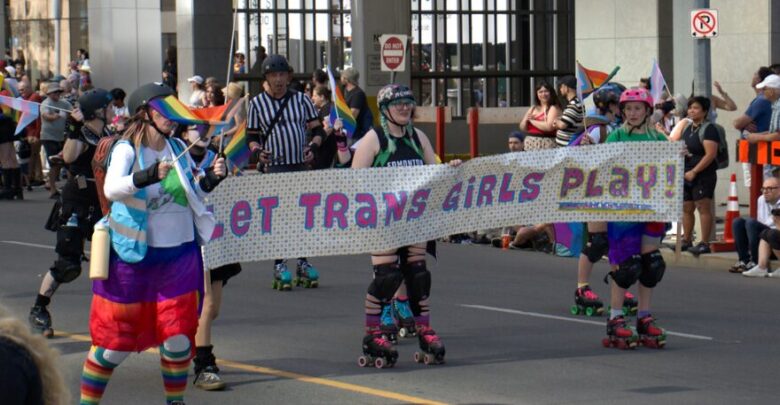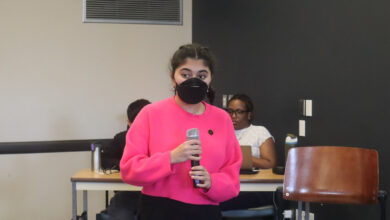How to keep sports unfair with a sports act
Premier Smith uses positive language to mask a Fairness and Safety in Sport Act that makes sports less accessible to transgender youth.
 Leah Hennig
Leah HennigOn September 1, the Fairness and Safety in Sport Act came into effect and stripped fairness from sport for all girls.
The Government of Alberta ratified an act that will make athletes in amateur competitive leagues present documentation proving their gender assigned at birth when asked. While Egale, Canada’s organization that advocates for 2SLGBTQIA+ issues, strongly condemns this act as transphobic, it is also sexist.
The act forces athletes in Alberta, primarily from Alberta schools, to participate on teams of their assigned sex when the sports league separates by gender. It dismisses transgender people’s right to present as they choose, but oddly enough, not entirely.
This new legislation is only directed towards transfeminine people. The Government of Alberta outlines in their Fairness and Safety in Sport Act Fact Sheet that this only applies to female-only leagues. So presumably, transmasculine people can still play in boys’ school sports and amateur leagues.
If people assigned female at birth are supposedly at a physical “disadvantage,” then transmasculine athletes would also be at a “disadvantage.” If this act aimed to make sports fair by making athletes play on teams of their assigned sex, it would include transmasculine people. This act is about exclusion and hate towards trans women.
The legislation’s polite language promotes a “balanced approach to protect the integrity of female athletic competitions.” Its civility just hides how it discriminates based on gender.
As the act was ratified by Premier Danielle Smith’s government, she clearly had enough support to create this legislation. However, there have been statements in protest since.
The Alberta government advertises consultation with “members of the transgender community.” But the transgender community has openly criticized the government’s choice, as have parents, student athletes, and psychologists.
Sports psychologist Katie Castle told CTV News that this act will not only put transgender girls at risk, but all girls. She highlighted how there are more important issues the Alberta government should be concerned about.
In her interview, she gave a quote that fits the situation perfectly — ”if we had better policies regulating adult behaviour around kids, that would statistically keep them safer than they are now.”
There is a prevalence of sexual abuse towards minors in Alberta. The Alberta government should focus on keeping children safe from unsafe adults. Not from transgender athletes who want to play the sport they love.
In 2023, KidSport Alberta identified several reasons why girls don’t play sports in Alberta. These reasons included feeling unwelcome.
This act will only exacerbate these feelings. No matter whether a girl is transgender or not, her participation can be challenged if she is 12-years-old or older. This process will take up time that athletes could be using to play their sport. It will also discourage girls from participating. They may grow paranoid about who watches them. Or, who could be judging whether they are “feminine enough” to avoid challenge.
The new system will just spark rumours. History has shown how these rumours have hurt athletes.
In the 2024 Paris Olympics, Imane Khelif, an Algerian Olympic gold-medalist boxer, was rumoured to be a trans woman. She endured an awkward and cruel public questioning. The scandal pressured the International Bar Association (IBA) officials to release a statement that there were no trans women in the 2024 Paris Olympics. This was unfair, and never should have happened.
Women deserve to participate in sports freely, without question, no matter if they are transgender or not. The Fairness and Safety in Sport Act will not only make transgender athletes uncomfortable, but all athletes.




